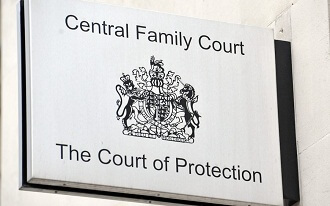Court of Protection Rules Woman Should Not be Told of Contraceptive Device
Court of Protection Rules Woman Should Not be Told of Contraceptive Device

The Court of Protection has ruled that a woman with learning difficulties should not be told that she was unknowingly fitted with a contraceptive device six years ago.
Lord Justice Baker stated that the unnamed woman had suffered a “very significant interference with her personal autonomy and her human rights” when the device was fitted without her knowledge in 2012. However, the court decided that the device shouldn’t be removed, on the basis that it was “plainly in [the woman’s] best interests for the [device] to remain fitted.”
Furthermore, the judge ruled that the woman should not be informed that the device had ever been fitted in order to preserve her trust in her carers, reasoning:
“To [inform the woman] would cause very considerable harm to her relationships with professionals and her family on whom she is utterly dependent.”
He underlined however that “covert treatment should only be countenanced in exceptional circumstances”, stating:
“When the time comes for the [device] to be renewed or replaced, every effort will have to be made to include [her] in the decision-making process about future contraception."
The judge heard evidence from social services staff, medics, and relatives before reaching the decision.
Court criticised for leaving young women vulnerable to sexual exploitation
The decision casts doubt on the initial ruling of another judge in the Court of Protection in 2012, who approved the initial fitting of a contraceptive device without the woman’s knowledge.
The judge in that hearing granted approval after social workers expressed concern that the woman was a vulnerable target for sexual exploitation. The court – which is based in London – rules on welfare and financial care issues on behalf of adults who lack the mental capacity to make decisions on their own behalf.
It recently came under fire for approving a care plan allowing a young woman with autism and severe learning difficulties to have sex with random men despite being unaware of the risks, resulting in what psychiatrists termed exploitation of the woman in question.
Judge Jonathan Butler gave care providers permission to leave the woman alone at home “to have sexual relations with others during daytime hours”. Carers were “not expected to intervene physically,” nor to “remain present” when the 23-year-old had sex with men in public.
The arrangement was later changed after a psychiatrist told judges that allowing the woman to be exposed to such a “high level of risk” of “sexual abuse, violence, injury or death” was unacceptable.
Court of Protection head calls for more transparency
Following that case in 2018, vice-president of the Court of Protection Mr Justice Hayden has called for more transparency in the court’s dealings. The vice-president of the court criticised judges’ lack of regard for the “dignity and safety” of the young woman in question in approving the care plan. Mr Hayden, who became vice president of the Court of Protection last year, has stated that the court must now “come properly of age and be a senior court of record.”
The senior legal expert noted that the court’s work was increasingly relevant to public debate, as medical advances and mental illnesses associated with an ageing population pose new ethical questions.
“These issues are going to come more and more into the public eye which is why I think the public need to know what we are doing and why we are coming to the decisions we are,” Mr Hayden stated.
The Court of Protection was created by section 45 of the Mental Capacity Act 2005 and has seen a steady rise in applications, with 31,332 applications made to the court in 2017.
Hearings are usually open to the public, with the cared-for person’s identity protected by a transparency order and strict reporting restrictions.
Contact IBB's Court of Protection solicitors for expert advice
IBB Solicitors has niche expertise on applications to the Court of Protection and three of our solicitors are members of the Court of Protection's panel of professional deputies. For advice, contact a member of the Wills, Trusts and Probate team, call us on 03456 381381 or email enquiries@ibblaw.co.uk.
